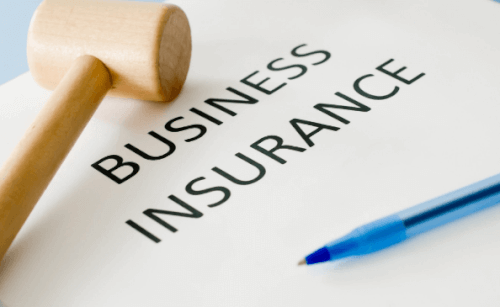Running business comes with challenges and sometimes you put your money at risk. It makes sense to insure your business so that you don’t have to worry about using your own finances. Business insurance is needed as it protects the machinery and equipment you need to operate your business. It also ensures employees, different stakeholders and your customers that are protected from the hazard you face as a business owner.
Here’s a scenario, imagine if your equipment or resources were destroyed or badly damaged. What would you do to keep the business going? How would you rebuild or fix the equipment and resources? Will you be able to pay for all these? The answer is no. That’s where insurance companies come in. They are here to help you. They provide you with a wide range of policies that cover big companies, small companies, hospitality operators, tradespeople and many more.
It is wise to know what kind of insurance policy you need for your business. Various types of business also require various insurance policies to look after your business assets and to cover the costs for legal liabilities.
Types of business insurance
Business insurance policies can be customised or altered to suit your requirements. You can also get a policy that is tailor made for you. Also bear in mind that policies are also planned to meet requirements of specific trade. For example, if you are running a coffee shop, your insurance policy will be different from the one running a mining company. Insurance policies differ accruing to different trades and industries. We have listed number of business insurances that you can consider:
Compulsory business insurance
There are two kinds of compulsory insurance.
- Workers’ compensation – every country has its own Workers’ Compensation system. This scheme protects workers in an event of an illness or an accident.
- Compulsory Third Party – if your company uses cars to operate day-to-day business, you will be required to take a Compulsory Third Party car insurance to protect your drivers. Should these drivers get involved in an accident; your insurer will cover them for personal injuries. This type of policy also requires business owners to register their vehicles under their business name.
You must also consider other type of car insurance to cover your business vehicle. Check with your insurance company to see if they offer additional features under Compulsory Third Party policy insurance.
Common types of business insurance
Many types of business insurances focus on personnel, liabilities, as well as assets and revenue. Here are common types of business insurances:
- Property – covers you when your building or property is destroyed or badly damaged.
- Professional liability – this protects you from legal actions taken against you if another individual endure loss as a result of receiving your service or professional advice.
- Public liability – this covers your legal fees for your business if someone’s death or injuries are caused by your company due to negligence. The victims will also be compensated.
- Product liability – this cover will protect you when the product you sell cause damage to others. You will be held accountable if your services cause harm to other people.
- Burglary and theft – this type of insurance policy covers your assets on your premises. Should anyone break and steal stock or your products, your insurer will replace the stolen goods.
- Money – this protects your money from theft (including online transactions).
- Tax audit insurance – protects costs earned by your registered tax agent or accountant.
Checklist for End Of Financial Year business insurance
It is important to understand what is written on your policy document and what is expected of your business. Use End of Financial Year (EOFY) Business insurance checklist to see if everything is in order. Below is an example of an EOFY.
- Are your business accounts reflecting the current costs?
- Have you reassessed all your insurance policies and checked if everything is fine? This is the time where you can talk with your insurer.
- Have you bought new equipment, signed new lease, bought new vehicle? Check how much they costed you.
- Do you have business interruption insurance if employees do not pitch to work or your business stops operating?
- Have you reviewed the risks to your company?
How to calculate premiums
All businesses are not the same. That is why your monthly premiums differ from a company to another. Your insurance company will take a look at various factors. These factors consist of the following but they are not limited to:
- Your claims history
- Products produced
- Size of the business
- Number of premises, employees
- Business income
- Type of business
- Location of business activities
- Nominated sum insured
- Risk factors concerned in running your company
- Relations of the business with third parties
Discounts and savings on your business insurance
Discounts are usually offered to businesses if your company or building has security and safety channels in place. Things such as fire extinguishers, CCTV, alarms and deadlock bolts are considered. Your insurance company can also offer you discounts if you qualify for:
- No-claim bonus
- Multi-policy discount
Image Courtesy: businessinsurance.co.za
